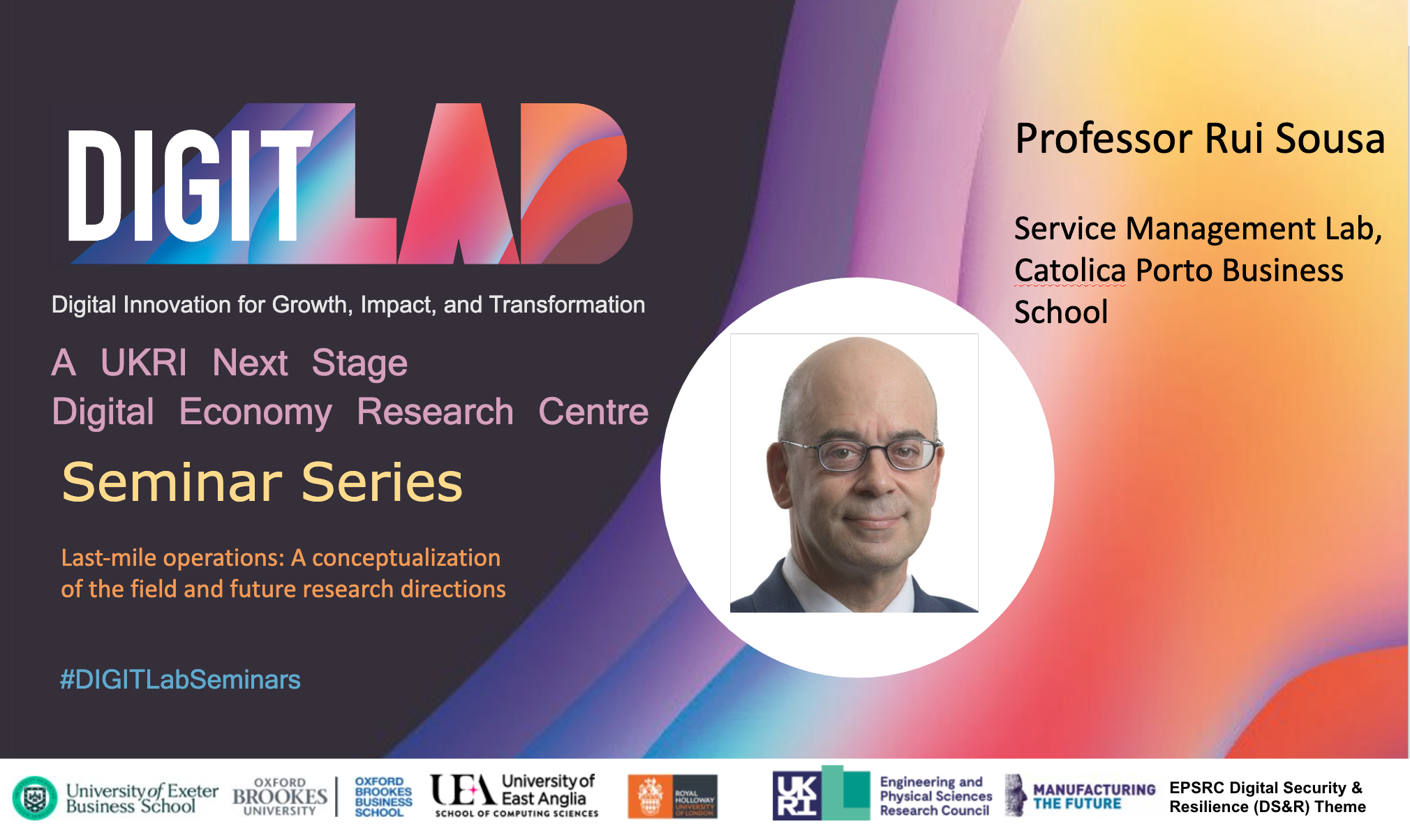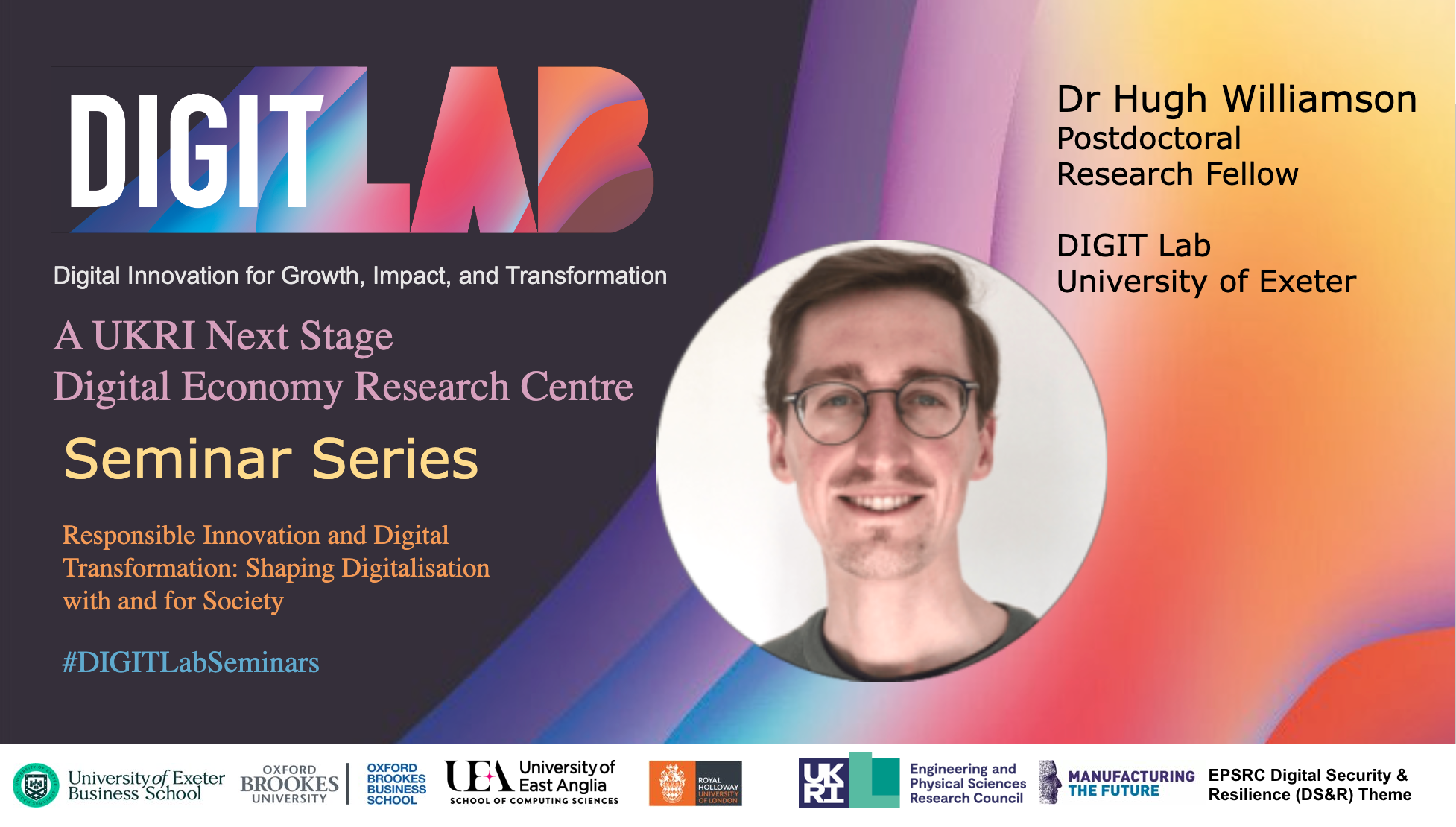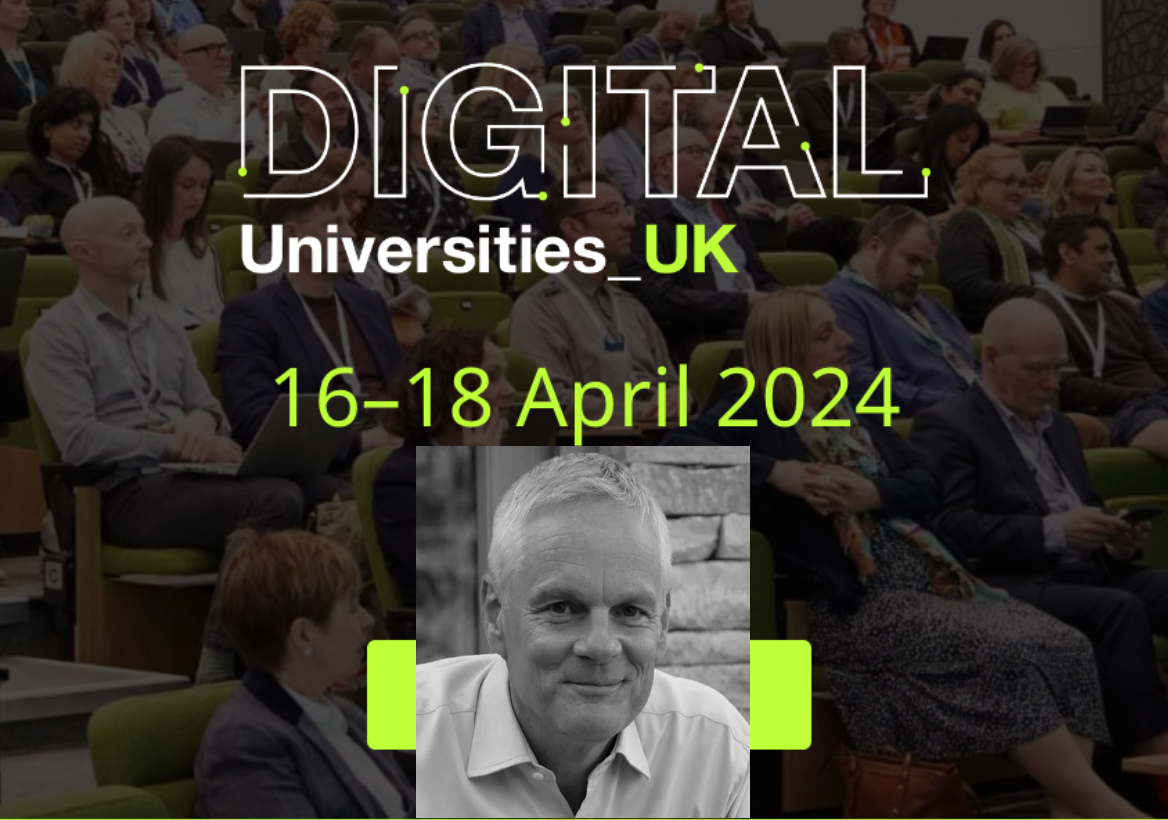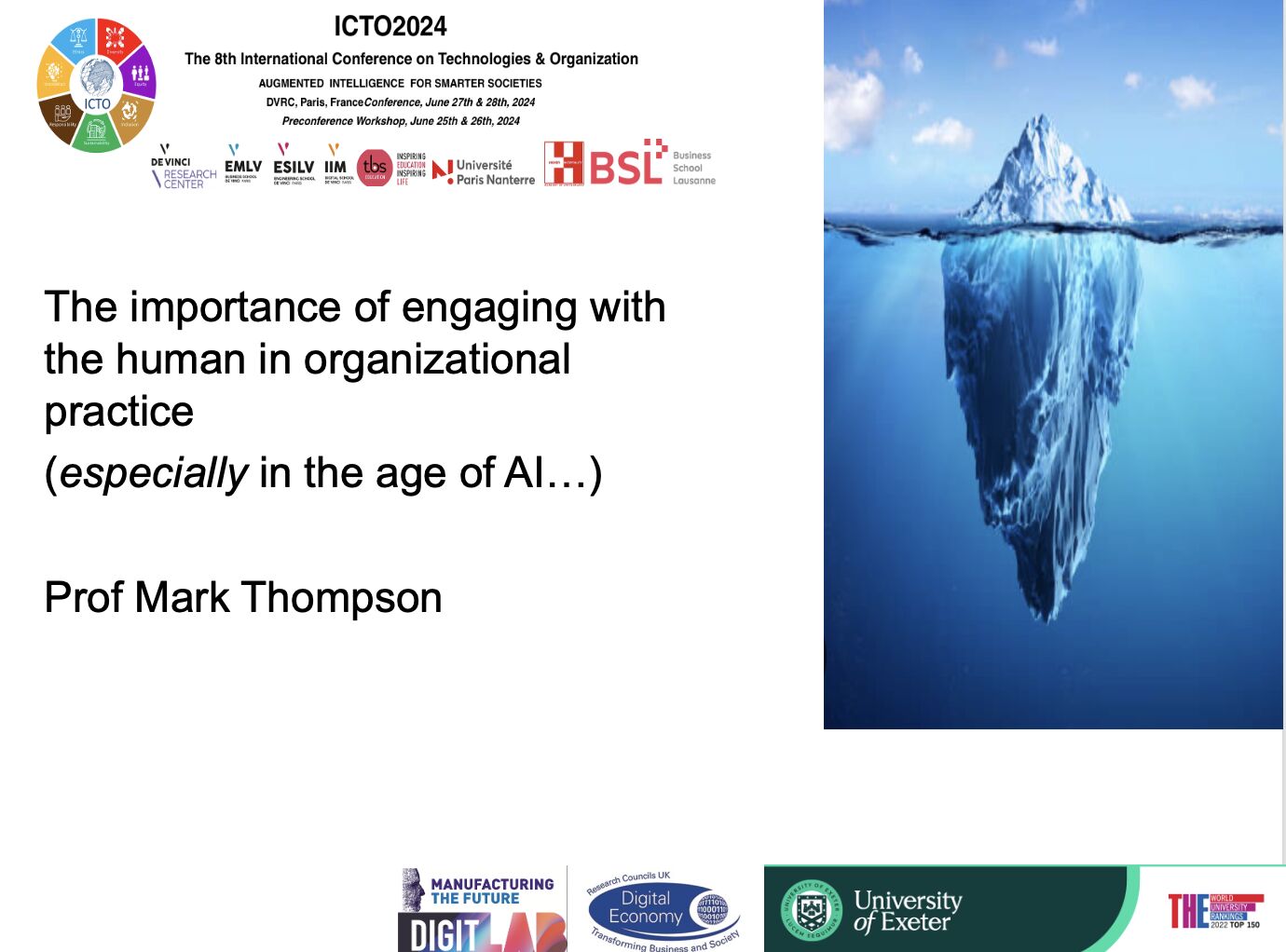By Saeema Ahmed-Kristensen, Professor of Design Engineering and Innovation and Director of DIGIT Lab
Today I take over as Director of the DIGIT Lab, and continue to work with Alan Brown as Deputy Director, effectively reversing our roles and continuing to work together, also with the wider team.
It was wonderful to be invited to deliver the keynote speech at Competitive Advantage in the Digital Economy (CADE 2022). The conference brought together multiple disciplines tackling research challenges to support the Digital Economy and some incredible speakers braved the Venetian heat.
In my presentation, I was keen to highlight the underpinning research for the digital innovation theme for the DIGIT Lab Centre, as well as providing an overview of the centre’s activity. In this presentation, I focused upon 3 aspects of my research (Cambridge, RCA, DTU, Imperial, Exeter):
1) complexity in systems – and the need to combine engineering knowledge with an understanding of how engineering designers and service engineers need to access information. This informs how to represent knowledge to support engineers who are developing expertise in complex domains – such as aerospace; the oil industry and medical devices
2) representing service knowledge – for products with long life cycles (such as those in oil rigs and aero-engines). Understanding how they behave once in service and how this knowledge can be used to enhance the next generation of designs is critical. Combining theories of communication with engineering knowledge enabled the research to impact both:
- how knowledge is represented within current information systems;
- the requirements of the next generation of products to reduce errors and also lead to organisation changes
3) representing user knowledge within computational systems – how can we combine human-computer interaction (HCI) theories to develop novel data-driven approaches, generating designs that create better experiences? For example, creating attachment to the product, and making them better for the environment, or designing products that will be comfortable. My keynote presentation progresses this area – with projects, from low-functionality consumer products (vases and headsets) to the design of orthosis, where poor fit can lead to surgical interventions, and decrease the quality of patient lives.
As we move through Industry 4.0, we are moving away from knowledge in documents (or that which resides in the heads of experts) to data from sensors. In order to make use of such data, we need to understand the context and how to transform it into knowledge. The human in the loop is imperative in our research at DIGIT Lab. There is a real engagement with, and appetite for, deeper knowledge of digital, that includes bringing together cognition and computational research, with a deep domain of knowledge.











